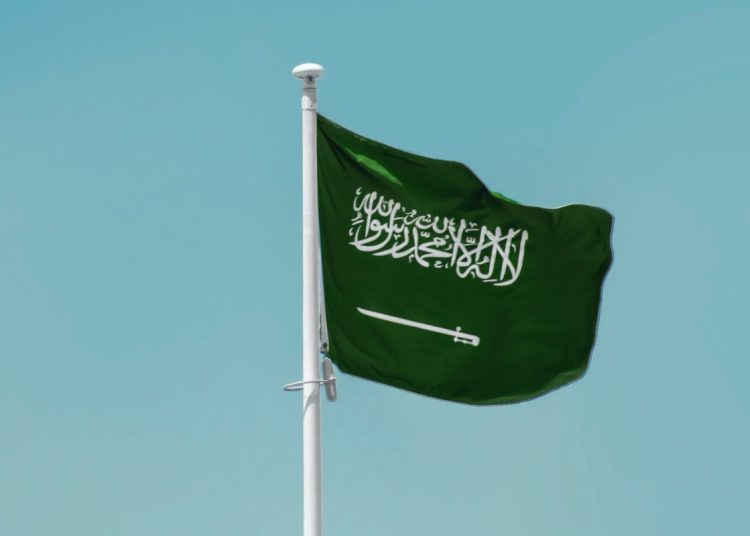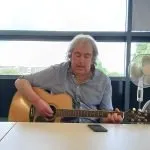A report by Human Rights Watch has found that its state wealth is effectively controlled by one person, Crown Prince Mohammed bin Salman.
NORTHEAST BYLINES

Photo credit: Aboodi Vesakaran/Unsplash
A 95-page report by Human Rights Watch “The Man Who Bought the World: Rights Abuses Linked to Saudi Arabia’s Public Investment Fund and Its Chairman, Mohammed bin Salman” has found that Saudi Arabia’s vast fossil fuel-derived state wealth is effectively controlled by one person, Crown Prince Mohammed bin Salman.
According to Human Rights Watch: “Saudi Crown Prince Mohammed bin Salman has unchecked control over the country’s nearly trillion-dollar Public Investment Fund
“The crown prince has used the Saudi sovereign wealth fund’s economic power to commit serious human rights violations and whitewash the reputational harm from these abuses.
“Sovereign wealth funds are funds accumulated by a government, often consisting of government revenue, trade surpluses, and reserves, and are invested domestically and abroad. Many have been built on oil wealth.”
What the Human Rights Watch report is based on
The report is based on a review of government statements, Saudi court documents; Saudi laws and government decrees; documents released during court proceedings in Canada and the United States; company records and reports; investigations and analyses by journalists, financial experts, and academics; as well as interviews with Saudi activists and dissidents, journalists, experts, and lawyers with long experience in Saudi Arabia.
The report states that the PIF has benefited directly from serious human rights abuses linked to its chairman, Crown Prince Mohammed bin Salman, also known as MBS. This includes the crown prince’s 2017 “anti-corruption” crackdown that consisted of arbitrary detentions, abusive treatment of detainees, and the extortion of property from Saudi Arabia’s elite.

Photo credit: Aboodi Vesakaran/Unsplash
A 95-page report by Human Rights Watch “The Man Who Bought the World: Rights Abuses Linked to Saudi Arabia’s Public Investment Fund and Its Chairman, Mohammed bin Salman” has found that Saudi Arabia’s vast fossil fuel-derived state wealth is effectively controlled by one person, Crown Prince Mohammed bin Salman.
According to Human Rights Watch: “Saudi Crown Prince Mohammed bin Salman has unchecked control over the country’s nearly trillion-dollar Public Investment Fund
“The crown prince has used the Saudi sovereign wealth fund’s economic power to commit serious human rights violations and whitewash the reputational harm from these abuses.
“Sovereign wealth funds are funds accumulated by a government, often consisting of government revenue, trade surpluses, and reserves, and are invested domestically and abroad. Many have been built on oil wealth.”
What the Human Rights Watch report is based on
The report is based on a review of government statements, Saudi court documents; Saudi laws and government decrees; documents released during court proceedings in Canada and the United States; company records and reports; investigations and analyses by journalists, financial experts, and academics; as well as interviews with Saudi activists and dissidents, journalists, experts, and lawyers with long experience in Saudi Arabia.
The report states that the PIF has benefited directly from serious human rights abuses linked to its chairman, Crown Prince Mohammed bin Salman, also known as MBS. This includes the crown prince’s 2017 “anti-corruption” crackdown that consisted of arbitrary detentions, abusive treatment of detainees, and the extortion of property from Saudi Arabia’s elite.
Public Investment Fund (PIF)
The report found that the Saudi PIF has facilitated serious human rights abuses linked to MBS, through companies it owns and controls. This includes the 2018 murder of Saudi journalist Jamal Khashoggi, a key critic of the anti-corruption crackdown. One of the companies transferred to the PIF during the crackdown Sky Prime Aviation, owned the two planes used in 2018 by Saudi agents to travel to Istanbul, where they murdered Khashoggi.
Human Rights Watch also state that MBS “overhauled the PIF’s governance framework and concentrated an immense degree of control and oversight of the fund into his own hands, enabling him to unilaterally direct enormous sums of state wealth to mega-projects that do little to realise economic, social, or cultural rights in Saudi Arabia.
PIF project’s
Saudi Arabia’s most marginalised people—migrant workers, rural communities, and poor and working-class residents—have borne the brunt of abuses stemming from the fund’s projects. Money from the PIF has been used for projects that have razed neighbourhoods, forcibly evicted residents, silenced communities and subjected migrant workers to serious abuses.
Human Rights Watch also found violations linked to some of the PIF’s most high-profile mega-projects, including the NEOM region, an economic zone and new city on the Red Sea that is being erected from scratch, as well as the Jeddah Central Project, an urban development project in Jeddah.
Saudi authorities forcibly evicted members of the Huwaitat tribe, who have for centuries inhabited the Tabuk province, in the planned NEOM area, arrested those who protested their evictions. They killed one protesting resident. Additionally, two residents received sentences of 50 years in prison, and three received death sentences for resisting the forced evictions.
Human Rights Watch: Human Rights norms
Human Rights Watch note that under internationally recognised human rights norms, the Saudi government should progressively realise economic, social, and cultural rights to that of available resources, including those the PIF controls. However, according to the United Nations Economic and Social Commission for Western Asia; Saudi Arabia has the highest poverty headcount rate for nationals in the GCC at 13.6 percent, meaning that poverty affects nearly “one in seven nationals in Saudi Arabia.”
The report has also found that the PIF under MBS operates with little transparency and accountability, raising concerns over whether these funds are ultimately invested and managed in a way that satisfies these international norms.
Human Rights Watch go on to say that: “the existence of a centrally controlled stream of revenue, such as oil revenue, can exacerbate an undemocratic ruler or governing elite’s abuses and misrule by providing the financial wherewithal to entrench and enrich itself without any corresponding accountability.”
Contrast
By way of contrast, Human Rights Watch did not find evidence that PIF-funded projects advanced the government’s obligations to fulfil the economic, social, and cultural rights of its people. Indeed, the Saudi government does not define or disclose basic data on poverty, or set a poverty line, making it likely that the poverty rate is much higher than the UN figure, especially affecting groups that are economically marginalised and vulnerable to systematic labour abuses.
Human Rights watch also stated that PIF investments in the United States, the United Kingdom, and elsewhere in the world have been used as a tool of Saudi soft power and influence. These investments include sports such as the LIV golf tour, the FIFA 2034 World Cup, and Premier League football club Newcastle United, in the UK. I believe these are a cornerstone of Saudi Arabia’s influence operations abroad.
The Human Rights Watch report found that:“these investments which seek to garner uncritical foreign support for MBS’s agenda, spread disinformation about the country’s rights record, neutralise scrutiny, silence critics, and undermine institutions seeking transparency and accountability.”
Finally
Finally, Human Rights Watch note that as a state entity: “the PIF has an obligation to uphold Saudi Arabia’s international human rights commitments. Businesses have a responsibility to avoid causing or contributing to human rights harm.
“In line with these responsibilities, businesses should conduct thorough and independent human rights due diligence prior to any engagement with the PIF and should refrain from activities that would bolster the reputation of government entities or officials recently and credibly accused of serious abuses.
“When serious adverse human rights impacts stemming from engagement with the PIF are unavoidable, businesses should suspend their engagement with the PIF.”
In terms of what should happen next it is suggested by Joey Shea, that, “businesses with ties to the Saudi Public Investment Fund have a responsibility to end their engagement with it if serious human rights violations connected with the PIF are unavoidable”.

Peter Sagar
Peter is a teacher, writer and historian who has also been active in human rights work for 35 years. He is particularly interested in how our great human rights history in the North East can help us to be both inspired and enlightened and enable us to face up to the challenges we face today. These challenges include defending the human rights of all people in the region and the country and dealing with the existential crisis that is climate change
No comments:
Post a Comment